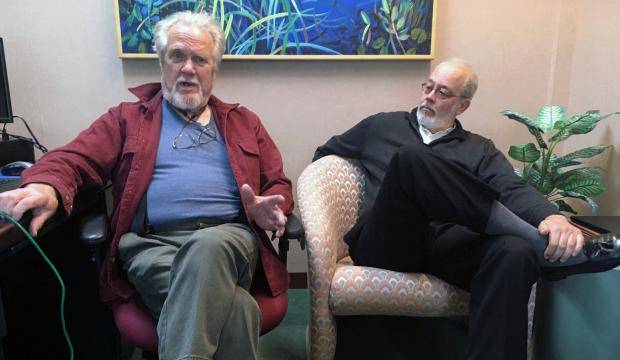State officials confirmed Tuesday that a billion-dollar bond issue is on hold amid a pending lawsuit by two Juneau men.
The bonds, authorized by the Legislature and Gov. Bill Walker under House Bill 331, are intended to pay oil and gas companies for work performed under a now-defunct rebate program intended to encourage oil drilling.
That program pledged tax credits to companies, but the state has declined (through budgetary vetoes by Walker) to pay more than minimum payments on that debt. Now, HB 331 plans to borrow money from global markets to pay the debt. Companies will be encouraged to take a haircut on the amount the state owes them. If they do so, they will get their money faster. That haircut will compensate for the cost of borrowing the money, the state expects.
Before Walker signed the bill into law, Eric Forrer launched a lawsuit to stop it. That case, Forrer v. Alaska, has been referred to Superior Court Judge Jude Pate. Joe Geldhof is representing Forrer; Assistant Attorney General Bill Milks has filed motions on behalf of the state.
The state is seeking the lawsuit’s dismissal, and oral arguments have not yet been scheduled.
In a Tuesday afternoon presentation to the Legislative Working Group on Oil and Gas, state tax division director Ken Alper told legislators that the bond issue envisioned by HB 331 is on hold and unlikely to go forward until the lawsuit is settled.
Deven Mitchell, the state’s debt manager and the person who would issue the bonds, confirmed that there are no plans to issue them until the superior court decides the case. (The case is likely to be appealed regardless of result.)
While nothing prevents the state from borrowing $1 billion and proceeding with the HB 331 plan before a verdict, there is a risk associated with that, Mitchell said.
“The risk is that if the state doesn’t prevail in the lawsuit, then the bonds would be declared null and void, and they’d need to be paid off,” he said.
The state would have to repay the money, plus interest, and it would end up in a worse financial position than it was beforehand.
Mitchell and Mike Barnhill, deputy commissioner for the Alaska Department of Revenue, said that if the state gets a positive verdict from the superior court on the legality of HB 331, it may proceed with the sale even if the case is appealed to the supreme court.
“That would be the first waystation, if you will,” Barnhill said of a superior court ruling’s influence on the go/no-go decision.
If bonds can’t be issued before the end of the fiscal year (June 30, 2019), the state operating budget approved by the Alaska Legislature allows the Department of Revenue to spend up to $100 million from the state general fund on a payment toward that $1 billion oil and gas credit debt.
Barnhill said the department will be following the legal process and will update the public in the fall about whether or not it is likely that bonds will be issued this fiscal year.
• Contact reporter James Brooks at jbrooks@juneauempire.com or 523-2258.

